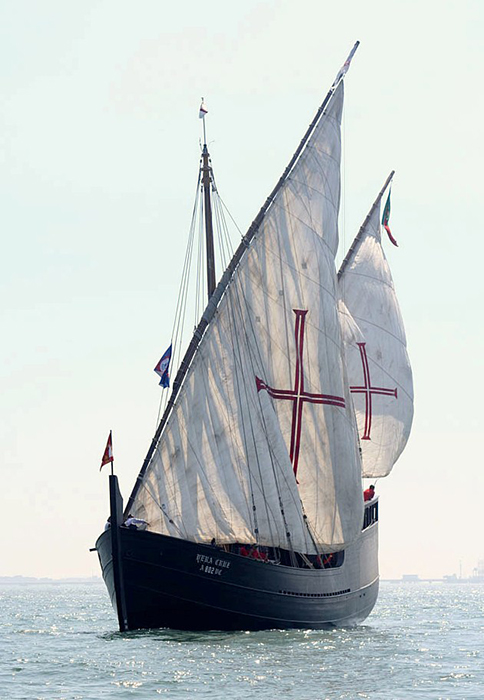Joaquim Magalhães de Castro
The Macanese merchants had fleets capable of sailing from their city to other Asian commercial ports, having many members of religious orders among them, with the Jesuits being the most active in a trade whose profit served to finance multiple evangelical missions.
Vaz Landeiro, with an army of adventurers and mercenaries and a significant number of ships and captains at his disposal, as researcher Lúcio Sousa says, “oscillated between legality and illegality”; he was a mix of trader and privateer, and, “due to his vast power and prestige,” they called him “King of the Portuguese of Macau.” His Jewish roots forced him to evade the Inquisition in Goa and, literally, to change his identity.
Among the many Jews who left Portugal, “some sailed towards the distant Portuguese overseas possessions in Asia.” Landeiro was one of them.
Little is known about his life between 1560 and 1570, when he started and consolidated his commercial project. We saw him in Macau from 1564, from where he left for Cambodia, “on a commercial trip,” having at that time espoused an Eurasian woman who would give him two daughters.
Captain Bartolomeu Vaz de Landeiro is already, in 1570, one of the most powerful men in the city, certainly due “to the profits resulting from trips, formal or informal, to Japan and other places in Asia.”
In addition to the Portuguese and Spanish captains, Landeiro had Chinese and Japanese captains at his service, with the ships’ garrisons being almost exclusively composed of Chinese, Japanese, Malaysian and other Asian sailors.
As Lúcio de Sousa recalls, “for the Portuguese Crown, those who operated outside the official system were labeled as outlaws.” However, whenever any of the adventurers joined the power in Goa, their status of pirates and bandits changed to that of a respected and admired captain.
The network of trade routes covered by Vaz de Landeiro ships was vast: Macau, Japan, Manila, Cambodia, Zion, Timor and India, “and possibly” Burma, Borneo, Java, Malacca and Aceh. Since these operations took place outside the scope of official trade, “involving armed ships that occasionally engaged in belligerent acts,” they can be considered acts of piracy. Bartolomeu Vaz de Landeiro, like so many other traders of the time, was involved in countless battles at sea, in some cases in defense of their ships against pirates; in others in “legitimate acts of aggression against their opponents.” One thing is certain: his ships were heavily armed and were always ready for battle.


 Follow
Follow


